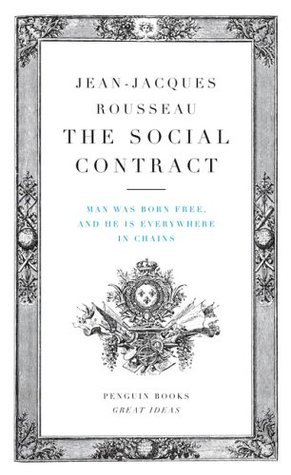
“The Social Contract” by Jean-Jacques Rousseau is a seminal work in political philosophy that explores the concept of the social contract, the nature of legitimate government, and the principles of political authority. Rousseau’s treatise presents a vision of a just and equitable society based on the collective will of its citizens.
Rousseau begins by describing the state of nature, a hypothetical pre-political condition in which individuals are free, equal, and possess natural rights. He argues that the advent of private property and societal inequalities disrupted the natural harmony of the state of nature, leading to the need for a social contract to establish a just and legitimate government.
The author introduces the concept of the general will, which he defines as the collective will of the people that represents the common good. Rousseau argues that a just government is one that acts in accordance with the general will, which reflects the shared interests and values of the entire community.
Rousseau discusses the formation of the social contract, asserting that individuals voluntarily come together to create a political community based on mutual consent. He emphasizes that the social contract is not a historical event but an ongoing process that binds individuals to the community and establishes the foundation for a legitimate government.
The author explores the principles of political authority, arguing that sovereign power resides in the collective body of citizens who exercise their general will through laws and institutions. He distinguishes between the sovereign, representing the general will, and the government, which is responsible for executing and enforcing the laws.
Rousseau discusses the concept of the “civil state,” in which individuals retain their natural freedom and equality but agree to obey the laws of the community. He argues that individuals must subordinate their private interests to the common good in order to maintain a just and stable society.
The author examines the principles of democracy and the role of citizenship in the social contract. He contends that active participation in political life is essential for citizens to express their general will and contribute to the common good. Rousseau advocates for direct democracy in which citizens collectively participate in decision-making.
Rousseau explores the limitations of representative government, expressing concerns about the potential for the government to become detached from the general will and act in its own interests. He emphasizes the need for a vigilant citizenry to ensure that the government remains accountable to the people.
The author discusses the importance of education in cultivating virtuous citizens who understand the principles of the social contract and contribute to the well-being of the community. He argues for a system of public education that instills civic values and fosters a sense of social responsibility.
Rousseau examines the relationship between individual freedom and political authority, asserting that individuals can only be truly free when they are governed by laws that reflect the general will. He argues that the social contract enables individuals to find freedom within the constraints of a just and equitable society.
In conclusion, “The Social Contract” provides a compelling vision of a just and legitimate government based on the principles of the social contract and the general will. Rousseau’s treatise continues to be influential in political philosophy, shaping discussions about citizenship, democracy, and the nature of political authority.